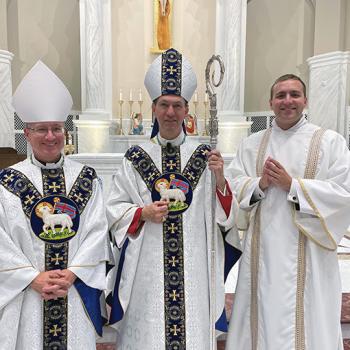The response does not answer or nullify the question. Rather it appears as a form of Integral reality consideration that probes the inner nature of our relationship to suffering in order to elicit a framework of realization and meaning within which to hold the question. Our certainty lies not in an answer but in the dignity and depth of the framework. Philosopher Charles Taylor reminds us that we live in "inescapable frameworks." There is no life lived outside of the context of a big-picture lens or worldview through which all reality is refracted and interpreted.
In premodernity, that framework was un-self-consciously sure of its absolute correctness. Tragically for most moderns and postmoderns, that framework results in the unconscious assumption that the world is essentially meaningless in any ultimate sense. This is the deadened hope of hopeless complexity that drives postmodern man to close his heart and radically narrow her circles of caring. It is in response to this unconscious modern and postmodern assumption of flatland vacuousness that Integral Consciousness might step into the void with its great goal of reconstruction, and with the evolutionary recovery of frameworks of meaning. Here lies the power of Second Simplicity.
It is with all of that in mind that we will offer a first reality consideration, what the Buddhists might call an analytic meditation, on the great problem of pain and suffering. Again, not as the metaphysical answer to the Why of suffering but rather as a response, a What, that asks, "How do we live as lovers, incarnating the good and becoming evolutionary co-catalysts of healing and transformation in a seemingly hopeless world filled with radical and constant suffering and pain?" Just read the news; every single day an unbearable dose of suffering and pain discloses itself to our consciousness. How do we respond without being overwhelmed, losing hope, or shutting down?
The Response
The response begins by realizing and remembering that in the teaching of some of the great traditions, this question is addressed not only to God, not only to the universe itself, but also to each and every one of us.
Asked to God, the question is: How do you, as the just, divine source and love intelligence of All-That-Is, how do you permit suffering? This question is addressed to the God of second person, who knows my name and loves me. How do you, God, allow for human suffering of such horror, intensity, and magnitude? Why do you not actively support the consistent manifestation of your nature as the good, the true, and the beautiful?
Asked of ourselves, the question becomes: What are we willing to do for the sake of the good, the true, and the beautiful? What are we willing to do to end the suffering?
In the western mystical tradition of Kabbalah, there was a profound recognition, and a mandate. The mandate of the western mystical consciousness, especially of the biblical consciousness that underlies the western traditions of ethics, is the demand that the human being enter into partnership with God in the task of perfecting the world. The classical expression of this within the lineage of Kabbalah is the obligation of Tikkun. "Tikkun" means not merely to heal or to fix, as it is usually translated, but, in the best reading of the original kabbalistic texts, "Tikkun" means to be co-creative evolutionary partners with the divine.
This evolutionary mandate to co-create and heal the world, with and as divinity, emerges, paradoxically, not out of answers but out of questions. The fact that the human being can challenge God, and that God accepts the human challenge, implies a covenantal partnership between the human being and God. Both the human being and God share an understanding of the good, and thus God can turn to the human being and say, "I invite you, nay, I demand that you be my partner, my co-creator in the perfection of the world. I began the process of creation; I established the moral fabric of the world. It is up to you to take that cloth and to weave its threads into greater fullness. It is up to you to complete the tapestry, it is up to you to risk, to grow, and to create a world in which good, love, justice, and human dignity flourish and are affirmed." A human being who cannot be trusted enough to challenge evil can also not be trusted enough to be a partner in fostering the good.
It is true that God very often seems silent in response to our challenge. Yet kabbalistic mystical consciousness, expressed through sacred text and lineage tradition, affirms that God accepts the validity of the question. In doing so God affirms our role as God's incarnate partner in history.
If I am able to recognize evil for what it is, then I am ipso facto obligated in tikkun olam—theobligation to act for and with God in the healing of the world. Man is the language of God. We are God's adjectives, God's adverbs, God's nouns, and even sometimes God's dangling modifiers. We are God's vocabulary in the world. When I love, when I am able to be truly vulnerable and intimate with another human being, when I am able to share the pain of another and to rejoice in their deep joy, I am acting for God. I become God's chariot in the world.




